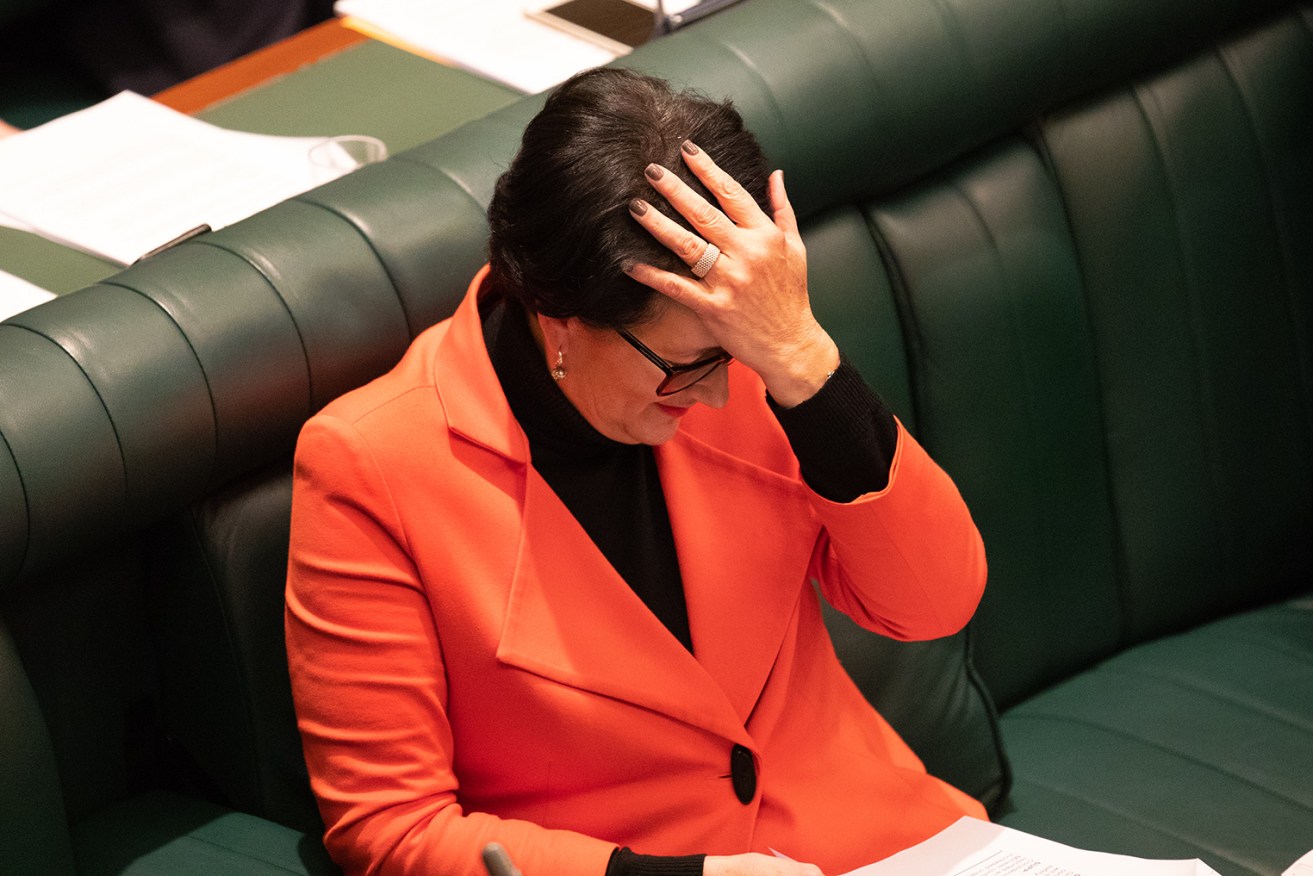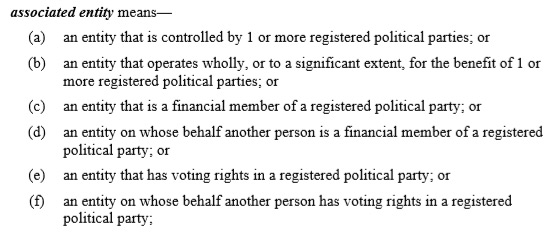Govt ‘must prosecute’ accidental lobbyists caught in legal loophole
The State Opposition says the Marshall Government has “no choice” but to prosecute unregistered ‘in-house’ lobbyists inadvertently caught in breach of state law – a law first introduced by the former Labor administration.

Attorney-General Vickie Chapman. Photo: Tony Lewis / InDaily
Attorney-General Vickie Chapman has introduced new legislation to amend the state’s lobbying act, in a bid to prevent office bearers of political parties and associated entities from being able to register as lobbyists in SA.
But in a Government briefing given to the Opposition about the new Bill, it emerged that the new legislation was also designed to close a loophole exposed in the existing law – which potentially leaves dozens of lobbyists directly employed by private firms in breach of the Act.
Shadow Attorney-General Kyam Maher told InDaily that the Opposition had “been informed by the government that they have legal advice which indicates that in-house lobbyists for private companies… are required to be registered as lobbyists and comply with the conditions set out in the Lobbyist Act”.
Chapman’s office confirmed that the new Bill “clarifies that only external independent lobbyists are required to be registered under the Act, and not employees or other office bearers or volunteers of an organisation who engage in lobbying on behalf of that organisation”.
“This means that an ‘in-house’ government liaison officer would not need to be registered to lobby or advocate on behalf of their employer,” they said.
“This was unclear and ambiguous in the Lobbyist Act as currently stands… by changing this, the Bill accords with the original intention of the legislation, which is not currently reflected accurately.”
A spokesperson said “given that those in-house lobbyists are acting in the course of their employment for one employee, it is reasonable that they not need to be registered and defined as lobbyists”.
They conceded though that such employees could “technically” have been in breach of the existing law since it was passed in 2012 – but insisted that a complaint would need to be made against them for any action to be taken.
However, Maher argues that the Government has set itself a precedent by vowing to prosecute inadvertent breaches of the Shop Trading Hours Act, amid a heated debate about shopping hours deregulation.
“Rob Lucas has previously said in relation to shop trading hours that ‘the law is the law [and] we have no choice but to ensure the law is complied with’,” Maher said.
“The Liberal Government is left with no choice but to crack down on anyone who is an unregistered lobbyist… under the precedent they’ve set, in-house lobbyists should be very concerned that they’re liable to two years’ jail.”
The Act stipulates the maximum penalty for unregistered lobbying is a fine of $150,000 for a corporate body and $30,000 two years imprisonment for an individual.
A spokesman for the lobbyists’ industry group, the Australian Professional Government Relations Association, said they were not aware of the loophole in the existing law, but that the “most important thing about any lobbyist’s activities is transparency”.
“What that means is if any person is sitting in front of a government official, it must be very clear to the government official who that person is representing,” they said.
With in-house lobbyists employed by a specific company, “I would have thought it’s pretty clear who they’re representing”.
In terms of applying the existing law, they said “that’s a matter for the government to look at”.
However, the spokesman said the Government should make it “crystal clear to our industry how to comply” with the law.
Compliance isn’t the only thing unclear, with the Attorney-General previously indicating a bid to capture union officials under “associated entities” had all but fallen by the wayside.
However, speaking in parliament to introduce the new legislation, she repeated her earlier rhetoric that the Bill would “ban any office bearer of the state governing body of a registered political party, or an associated entity such as a union, from becoming a registered lobbyist”.
The legislation defines “associated entities” according to the state’s Electoral Act, which – while it identifies organisations that are “financial members of a registered political party” or having voting rights within them – does not stipulate trade unions.

The definition in the Electoral Act.
Asked to clarify whether union officials were captured under the Bill, Chapman’s office said “it is up to the Labor Party, knowing how their party operates, to determine if unions are captured here”.
It appears the Attorney-General may not understand the nature and effect of her own legislation
A spokesperson said someone “communicating on behalf of a client to a public official in the ordinary course of holding that office” was not considered to be lobbying.
“For example, if the [shopworkers’ union] has voting rights in the Labor Party, and choose to lobby a public official on business relating to a shop trading matter, they will not be taken to be lobbying and therefore not restricted under the act,” they said.
“This is completely reasonable and does not restrict the work unions undertake, but does ensure entities controlled by parliamentary parties are not lobbying for reasons outside their ordinary duties.”
Maher said Chapman’s public statements about the effect of her legislation appeared at odds with what she told parliament.
“The Attorney has indicated in media statements that unions wouldn’t be captured by this Bill, but in the very first sentence of her second reading speech she says they will,” he said.
“It appears the Attorney-General may not understand the nature and effect of her own legislation.”
Want to comment?
Send us an email, making it clear which story you’re commenting on and including your full name (required for publication) and phone number (only for verification purposes). Please put “Reader views” in the subject.
We’ll publish the best comments in a regular “Reader Views” post. Your comments can be brief, or we can accept up to 350 words, or thereabouts.
InDaily has changed the way we receive comments. Go here for an explanation.




